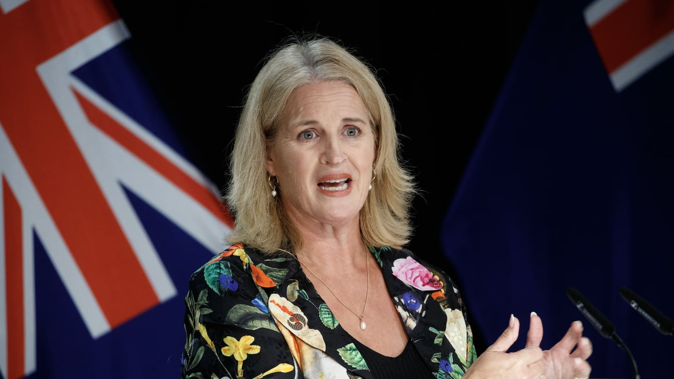
Disability Issues Minister Louise Upston will announce changes to Whaikaha the Ministry of Disabled People this morning after a scathing review found it had " “no controls” to restrain exploding service costs, and, just six weeks into the current fiscal year, is on course to blow its $2.6 billion funding, despite receiving a generous top-up in the Budget.
Upston’s announcement will be streamed at the top of this story.
The report was led by former Department of Prime Minister and Cabinet head Sir Maarten Wevers. A copy, obtained by the Herald, warned that disability services spending has blown budgets for almost a decade, even prior to Whaikaha’s establishment in 2022.
The review said the problems went all the way back to planning to set the ministry up.
“Numerous risks identified in the planning process for the ministry have eventuated in practice, including, in particular, ongoing budget over-runs,” the review said.
Wevers concluded the ministry’s establishment was “rushed” and that it was “ill-prepared” for the crucial job of commissioning services for people with disabilities.
Upston’s changes are expected to include a radical reshaping of Whaikaha. Currently, Whaikaha commissions disability support services from third-party providers. This role will be split from Whaikaha and given to the Ministry of Social Development (MSD), leaving it focused on an advocacy role.
This action was not recommended by the review, which recommended strengthening the existing arrangements with the MSD.
The review recommended freezing funding levels for residential facility-based care for this year at last year’s spending levels, pending a review. The review will “stabilise the financial underpinnings of services to a group of clients with some of the highest needs”. It also recommended taking “no action” on price increases from disability support providers in order to clamp down on persistent cost inflation.
The ministry was given a 6% increase in funding for disability support at the Budget, but the Wevers review warned that passing this through to providers will mean the ministry facing “even greater cost pressures in the out years” as providers are likely to absorb that increased funding in their billing. It recommends reviewing contracts and pricing and using that 6% in funding to meet “increased demand” and not to give in simply to “increased price” for the same services.
This will set Upston and the Ministry of Social Development on a collision course with disability service providers, which the ministry said are “expecting price increases” this year.
Wevers found the ministry “lacks many of the public sector disciplines and operational practices seen in other Government agencies”.
“Financial controls are poor. It is difficult to gain a clear understanding of how well disabled people are being supported through providers the ministry has contracted,” the report said.
That the “seriousness” of breaching its annual budget was “not... widely appreciated by the ministry’s executives”, despite it being a “matter of law for all Government agencies”.
There was an “absence of reference” to the all-important Public Finance Act and Public Service Act inside the ministry.
Poor management of disability support service funding has been a problem since at least 2015/26, when this funding was managed by the Ministry of Health, before it was rolled into Whaikaha when it was created in 2022.
Funding exceeded its appropriation each year bar one (2022/21). The review found that each year the disability support services budget was topped up from another part of the wider Health budget. This problem was only exposed once disability services funding was split out on its own.
This has created an expectation within the ministry that “additional funding will be made available every year”, and the “widespread belief” in the ministry that cost growth “simply cannot be constrained by budgetary controls”.
These pressures led Wevers to conclude the agency would blow its budget again this year unless action was taken.
“There are no controls in place to contain this trajectory. Accordingly, we have no reason to believe that the anticipated cost growth will be constrained in 2024/25, even within the 6% growth in funding that has already been provided,” the report said.
Some changes appear to be out of the ministry’s control, including enormous growth in the number of people who receive disability support funding, which has grown by 43% since 2019 to 50,000 people.
Most of this growth has been driven by people presenting with intellectual and autism spectrum disorder, which had grown by 2500 and 9600 respectively since 2019, resulting in cost increases of $293 million and $176m respectively.
When Upston commissioned the Wevers review in May, it was intended to be a two-part review, with phase two focused on the “long-term sustainability” of the disability support service system. Wevers advised the ministry is in such “urgent need of change” that phase two should not proceed currently. Instead, it recommended “a team of experienced staff” be brought into the ministry to strengthen processes and systems.
Wevers was joined as reviewer by Tregaskis Brown senior partner Leanne Spice and Wellington City Missioner Reverend Murray Edridge.
Take your Radio, Podcasts and Music with you









